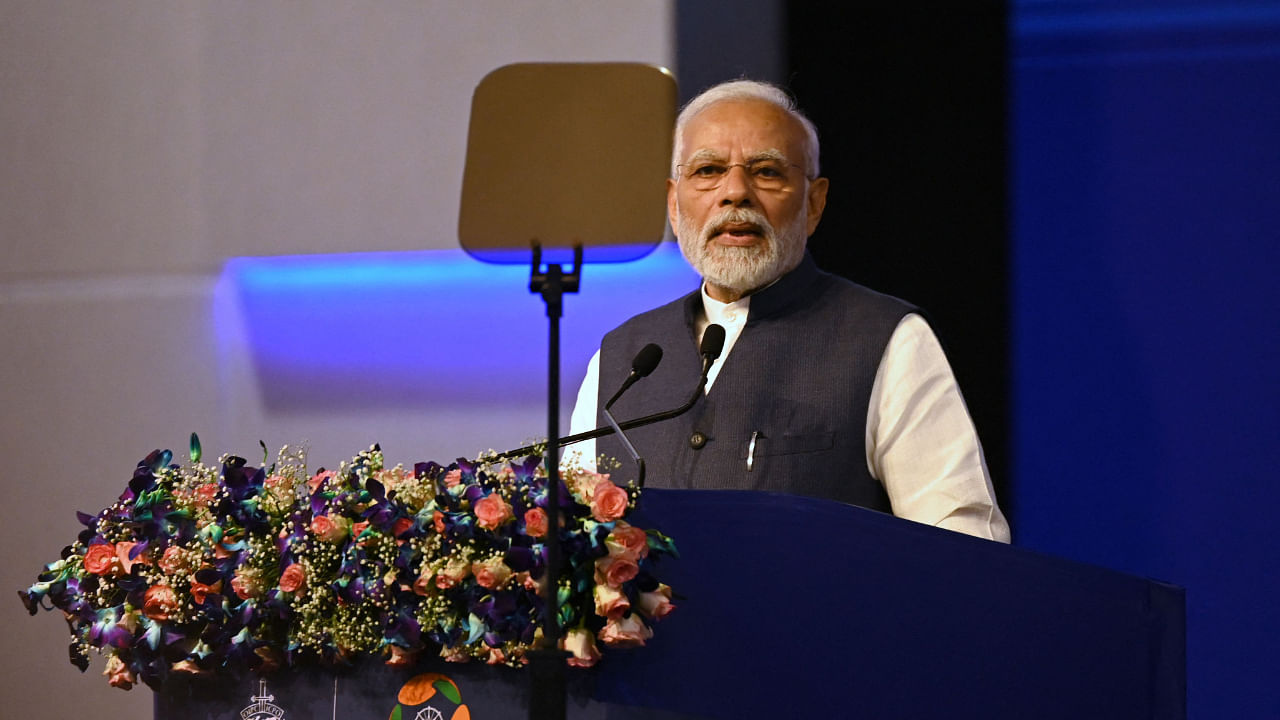
There can be no safe havens for the perpetrators of terrorism and organized crimes, Prime Minister Narendra Modi said, asking the Interpol to speed up the process of issuing Red Corner Notices (RCN) against fugitive offenders.
He also said that India was a case study for the world in upholding diversity and democracy.
“India has been combating trans-national terrorism for several decades,” Modi said at the 90th Interpol general assembly being held in New Delhi – subtly sending out a message to Pakistan, which also sent a delegation, led by its Federal Investigation Agency (FIA) chief Mohsin Butt, to attend the conclave.
“Long before the world woke up to it (transnational terrorism), we knew the price of safety and security. Thousands of our people made the ultimate sacrifice in this fight,” he added.
Butt kept mum when the journalists asked him about the underworld don and the 1993 Mumbai blast mastermind, Dawood Ibrahim, India’s most wanted fugitive suspected to be hiding in Pakistan. He also declined to reply when the journalists asked him if Pakistan could hand over to Indian terrorists like Jaish-e-Mohammed chief Masood Azhar or the Lashkar-e-Tayyiba founder Hafiz Saeed. Azhar and Saeed are based in Pakistan and masterminded several terrorist attacks carried out by the JeM and LeT in India.
The prime minister stressed the need for the global community to work faster to eliminate safe havens.
“There can be no safe havens for the corrupt, terrorists, drug cartels, poaching gangs or organized crime. Such crimes against people in one place are crimes against everyone, crimes against humanity. Further, these not only harm our present but also impact our future generations,” he said, adding, “Police and law enforcement agencies need to devise procedures and protocols to increase cooperation.”
Also Read | Pakistan FIA chief ducks questions on Dawood Ibrahim, Hafiz Saeed at Interpol conference
The prime minister noted that combatting transnational terrorism in physical space was no longer enough as it was now spreading its presence through online radicalisation and cyber threats.
“At the click of a button, an attack can be executed or systems can be brought to their knees,” he said.
“Each nation is working on strategies against them. But what we do within our borders is no longer enough. There is a need to further develop international strategies,” Modi said.
He stressed the establishment of early detection and warning systems and protection of transportation services, security for communication infrastructure, security for critical infrastructure, technical and technological assistance and intelligence exchange.
Modi also said that police in India at the federal and state levels cooperated to implement more than 900 national and around 10,000 state laws.
“People from all the major religions of the world live here. There are hundreds of languages and dialects spoken. Massive festivals attract millions of devotees,” he said, citing the example of Kumbh Mela, the largest and longest spiritual mass gathering in the world, attended by 240 million pilgrims.
“With all this, our police forces work while respecting the diversity and rights of the people promised by the Constitution,” said the prime minister.
“They not only protect the people but also serve our democracy. Take the scale of India’s free, fair and massive elections. Elections involve arrangements for around 900 million electors. This is close to the population of North and South American continents taken together,” he said, adding, “About 2.3 million police personnel are deployed to help with the elections. In upholding diversity and democracy, India is a case study for the world.”
